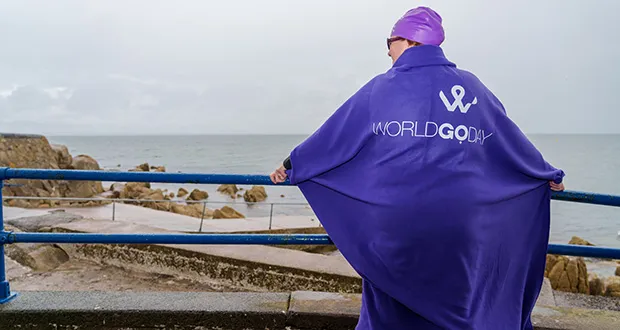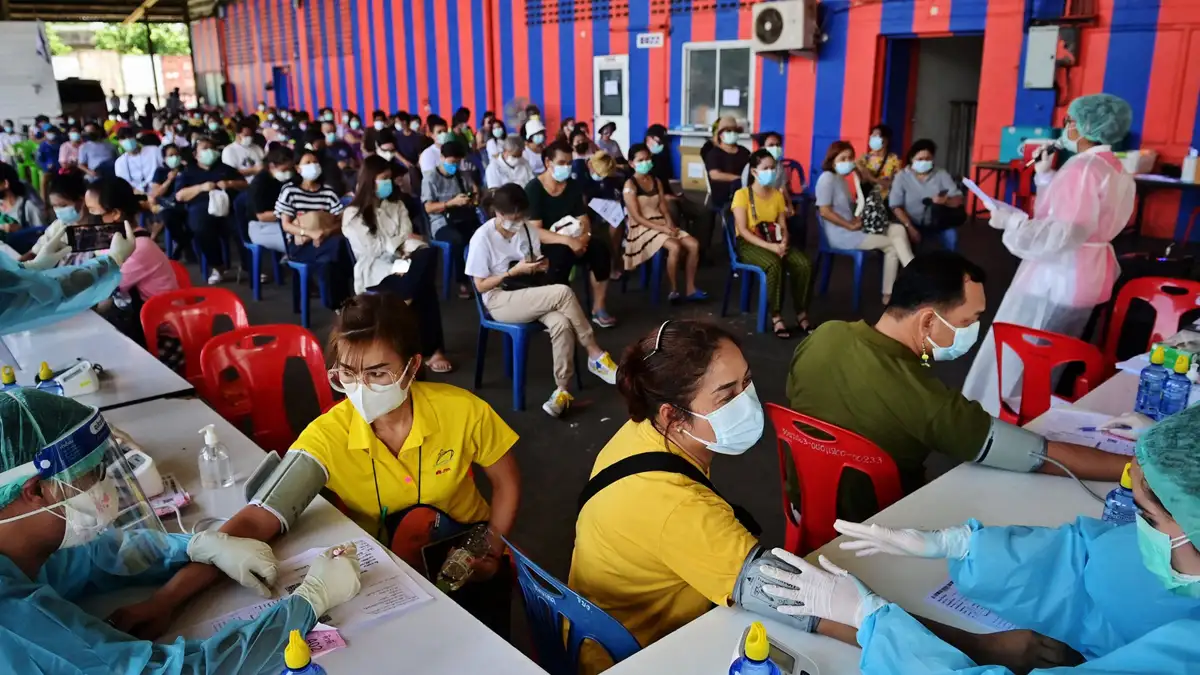One in three women mistakenly believe cervical screening checks for all gynaecological cancers
By Editorial Staff
Copyright imt

World Gynaecological Oncology Day (World GO Day) takes place on Saturday, September 20. On this day, patients, advocates, and medical professionals around the world unite to raise awareness of all five types of gynaecological cancers (vulval, vaginal, cervical, uterine, and ovarian), promote early detection, and support affected women globally through open conversations.
The Irish Network for Gynaecological Oncology (INGO) is a voluntary coordination body of over 30 of Ireland’s leading gynaecological cancer campaigners, researchers, and patient advocates. Committed to educating the public on prevention, symptoms, early diagnosis, and treatment, INGO launches an annual campaign each year to coincide with World Gynaecological Oncology Day.
Minister Mary Butler, Minister of State at the Department of Health supported the launch of World GO Day with INGO and said: “I am delighted to support INGO’s World GO Day this year. Raising awareness about all gynaecological cancers is crucial to ensure women understand their health and feel confident seeking help. Early detection can save lives, and campaigns like World GO Day empower women to recognise symptoms, speak openly with their GP, and access care without fear or stigma. By shining a spotlight on these cancers, we can break down barriers, challenge misconceptions, and encourage women from all communities to prioritise their health. I encourage everyone to take part on September 20 – whether by attending events, joining a ‘Dip or Dance,’ or simply talking openly about gynaecological health with friends and family – every action can make a difference.”
Misconceptions and stigma around gynaecological cancers continue to be a major barrier to early diagnosis. Research commissioned by the Irish Network for Gynaecological Oncology (INGO), and funded by Breakthrough Cancer Research, shows that one in three women (31 per cent) mistakenly believe cervical screening checks for all five gynaecological cancers. The same research found that one in seven women delay or avoid GP visits due to embarrassment discussing symptoms, and one in five would avoid going to the doctor because they do not want to speak to the GP receptionist about their symptoms. With almost 2,000* women across the island of Ireland diagnosed with gynaecological cancers annually, these barriers can have life-threatening consequences.
Suzanne Bermingham, Patient Advocate and Nurse, shares her experience: “Having lived with endometriosis and adenomyosis, I was used to heavy bleeding, but when my symptoms became severe enough to require a blood transfusion, I knew something was different. Participating in the World GO Day swim and seeing the gynaecological cancer symptom checklist made me realise I couldn’t ignore it. My message to women is simple: don’t ignore your symptoms, advocate for yourself, and speak openly about all aspects of women’s health. I swim twice a week with my family across four generations (my daughter, mother, and grandchild) which gives us time to connect and talk openly. Family support is invaluable and understanding what’s normal versus a warning sign empowers us to seek help, because speaking up can save lives.”
Gynaecological cancers affect the female reproductive system and include five main types, each with distinct symptoms and risk factors:
Vulval cancer –Persistent itching, skin changes, or lesions should be checked early, as early diagnosis can reduce the need for aggressive treatment.
Vaginal cancer – Vaginal cancer is rare. HPV vaccination plays a key role in prevention. Examination of the vaginal area can help detect precancerous lesions. Only one in four women in Ireland link changes in urinary habits to this cancer.
Cervical cancer – The majority of cervical cancers are caused by the human papillomavirus. The good news is that it can largely be prevented by HPV vaccination in early puberty and attending HPV cervical screening each time you are invited. If you are found to have the virus your sample is checked for abnormal cells. If you have abnormal cells you are referred to colposcopy for further investigation and treatment to stop cancer from developing. Ireland is on track to eliminate cervical cancer by 2040. Even with vaccination and screening, women should still be aware of symptoms, such as abnormal vaginal bleeding/discharge or pain during sex and consult a GP when necessary.
Uterine (endometrial/womb) cancer – The most common gynaecological cancer, may be signalled by postmenopausal bleeding or bleeding between periods in younger women. Yet only 40 per cent of women in Ireland recognise abnormal bleeding and discharge as a symptom.
Ovarian cancer –Over 75 per cent of cases are diagnosed in advanced stages. There is no reliable screening test, so awareness of persistent symptoms is critical to avoid delays in diagnosis and treatment. The most common symptoms are reflected by the BEAT acronym; Bloating, Eating difficulties, Abdominal pain and Toilet changes.
Different gynaecological cancers can cause different symptoms. If any of the following persist for more than two weeks, it is important to speak to a GP:
Abnormal vaginal bleeding, including bleeding after the menopause
Pelvic pain
Vaginal bleeding during or after sex
Persistent abdominal swelling or bloating
Unexplained weight loss or gain
Ongoing bowel or bladder changes, such as diarrhoea, constipation or having to pass urine more frequently
Dr Dearbhaile Collins, President Irish Society of Gynaecological Oncology said: “This World GO Day we want to remind women that early detection is crucial for improving survival rates in gynaecological cancers. Knowing the symptoms and risk factors is key, and if you notice anything unusual, don’t be embarrassed to speak to your GP. Family history is also important to convey to your GP as genetics can play a role in some gynaecological cancers. Stigma and misconceptions still prevent many women from seeking help, so it’s vital to normalise conversations about gynaecological health. Medical professionals are here to support you, and speaking up early can save lives.”
As part of its ongoing commitment to inclusivity and community outreach, INGO member Yvonne O’Meara has worked with members of the Travelling community around Ireland to create a new and more accessible educational leaflet. Developed in partnership with the community itself and funded by The Irish Cancer Society and AstraZeneca, the leaflet has been codesigned to ensure information about the signs and symptoms of the five gynaecological cancers is accessible to all minority groups, including those for whom English may not be their first language. This initiative, launching this year, represents an important milestone in broadening awareness and empowering more women across all societies with the knowledge they need to take action on their health.
This September, the INGO is encouraging the public to register for a free information event at 3pm on World GO Day (September 20) at the Breakthrough Cancer Research “Cancer Revolution Exhibition” in Stephen’s Green Shopping Centre, Dublin. Opening address by Ivana Bacik TD, Ms Claire Thompson, Gynaecological Oncologist will discuss symptoms, risk factors and prevention of gynaecological cancers and also highlight patient testimonials. Registration is available at http://bit.ly/47D1vhg
The INGO also invites people to join ‘Dip or Dance’ events across the country. From sea swims to community dances, these events aim to highlight how staying active can help reduce the risk of certain cancers, including uterine cancer.
Riley, an Irish, female-founded company that sells sustainable, eco-friendly period care products, have partnered with the Irish Network for Gynaecological Oncology this month to raise awareness of gynaecological cancers and their symptoms.
For more information on Gynaecological cancers and World GO Day activities in Ireland, including Dip or Dance events, visit www.thisisgo.ie



